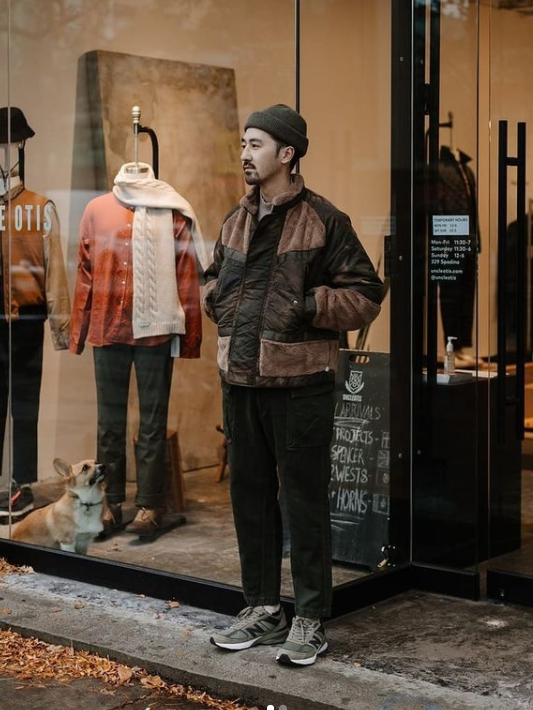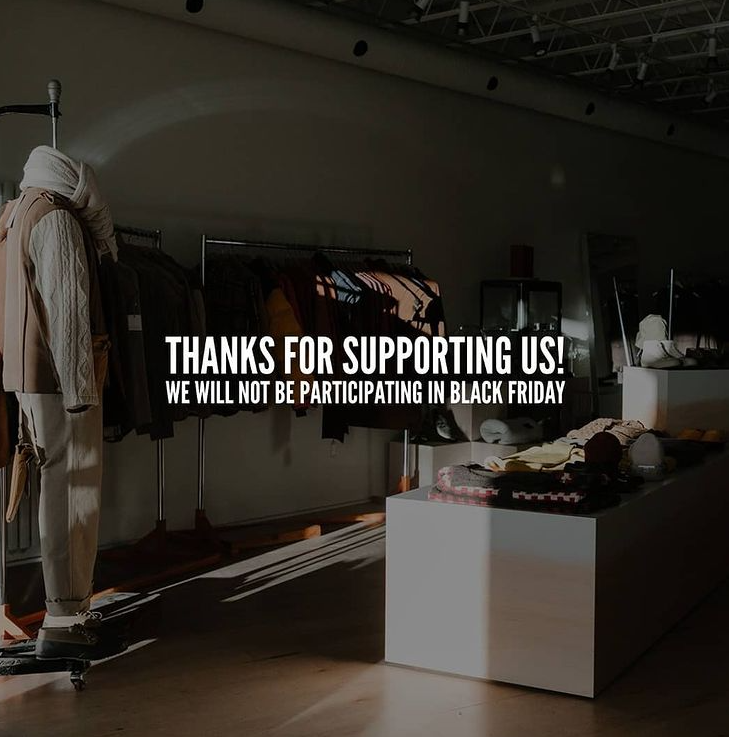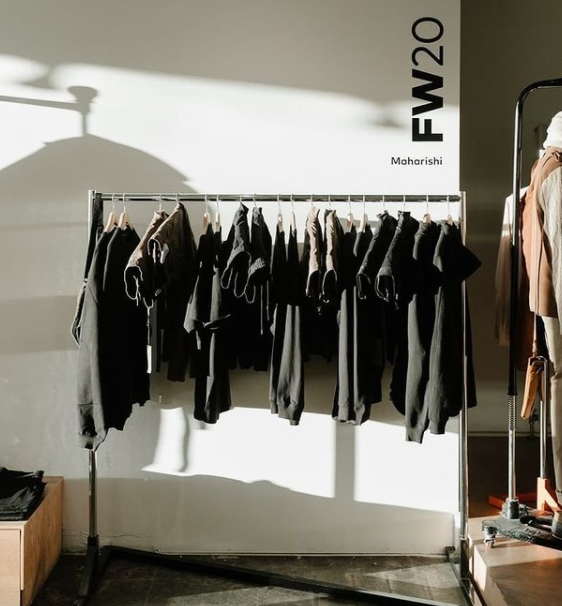Chinatown’s Uncle Otis is not conforming to annual sales or discounts this year in an effort to promote local businesses

A Toronto-based men’s clothing boutique announced that it will not participate in Black Friday sales and discounts this year to help promote local businesses during the COVID-19 pandemic.
Uncle Otis, an independent business operating in the city for the last 30 years, is asking their customers to support local stores instead of looking to big-box chains on Black Friday.
“Nobody wants to go on sale in the retail industry for Black Friday, they’re forced to do so,” said Uncle Otis store manager and buyer Vince Lai.
Lai has taken to social media, particularly Instagram, to promote both his store and the Chinatown community of small businesses that are struggling to make it through the pandemic, which has become more difficult by the second lockdown put in place on Nov.23.
On Nov.12, Uncle Otis posted on Instagram that it will not participate in Black Friday while thanking its customers for their support.

The post urged customers to reject discount shopping, and instead support the local downtown Chinatown community of “individuals and families that have invested to pursue their dreams to offer something unique to the world, the community, to you.”
Other small business alternatives to big brands are tagged and mentioned in the post, ranging from coffee shops to restaurants, grocery stores and music stores.
These businesses include the Kensington Market Food Market, a family owned business for the last 40 years, MoonBean Coffee Company and Paul’s Boutique, a music store.
Like Uncle Otis, Paul’s Boutique also decided to not partake in any Black Friday discounts, according to their website.
Lai mentioned the Tap Phong Trading Company at Spadina Ave. and Baldwin St. as well, a family owned household goods store established in 1984.
By highlighting these businesses through social media, Lai hopes customers will think of the families and workers that operate these businesses, who are relying on limited foot traffic, curbside pickup and takeout to stay afloat.
“Social media context is everything,” said Lai. “It’s how you’re presented, it’s your brand identity, and you have to become active. You can’t allow it to fall to the wayside.”
To counter the current measures of the lockdown, which includes no indoor purchases from stores that are deemed non-essential by the Ontario government, Lai said the store is doing its best to make every visit to their website and social media profiles as welcoming as possible.
“At the end of the day, if I can’t get someone to walk into the store, getting them to my website is still them walking in – it’s visiting us virtually.”
For Lai, these local businesses are selling an experience to the customer and they are doing their best to do so online.
He mentioned the surrounding Asian restaurants that were built to offer in-seat service, but are now scrambling to meet the province’s lockdown regulations and fully commit to takeout. Some examples include Chine Legendary Hot Pot and Noodles and Rol San dim sum, two restaurants neighbouring Uncle Otis.
For Uncle Otis, Lai said the store’s creative approaches include providing tailored experiences to their customers, such as videos on sizing and what garments and pieces to wear during specific temperatures in the city.
Lai also hosts one-on-one conversations with prospective customers online to talk about specific products and sizes, and answering customer questions through Instagram stories.
Another approach that Lai said has been helpful is updating the front window displays of the store to peak interest from foot traffic. While customers cannot enter the store, they can immediately visit the website and buy the specific item there.
Renewed mindset for customers
As corporate chains prepare to roll out promotions and discounts to customers that may want to spend less on fast fashion and current trends, Lai said he has seen an alternative shift during this pandemic as well.
“Fast fashion is accessible, and the (Uncle Otis’ customer) community is shifting their idea of saying, ‘OK, I can invest my money into a garment that will last a long time.’”
Lai’s example of this mindset is spending on a fast fashion item that may last two seasons or spending five times that cost for an item that is made ethically by fair wage workers and will last a lifetime.
“Practicality goes a long way,” he said. “You want to get some sort of worth, you want quality.”
One example Lai mentions is the British company, Maharishi, whose quality continues to be a bestseller for the store.

Another example is Le Mont St. Michel’s chore coat made in France by fair wage workers with ethically sourced cotton, which may cost up to $375, or one from Uniqlo for $40 that is made in a third-world country.
Moving forward, Lai said the city’s first lockdown in the spring has been “a learning experience” that will help him navigate the second one as the busiest stretch for retail towards Christmas approaches.
He urges customers to think about how they spend their money on Black Friday, and to remember the communities like Chinatown that are part of the identity of the city.
Uncle Otis was originally located in the Yorkville community before moving to its current home on Spadina Ave. just south of Dundas St. W two years ago.
The store was started in 1991 by Roger O’Donnell, the keyboardist for the band, The Cure. The name comes from O’Donnell’s love for singer Otis Redding, according to Lai.
Lockdown responses
At the beginning of the lockdown on Nov.23, Dan Kelly, president of the Canadian Federation of Independent Business, questioned why big chains considered essential like Walmart and Costco were allowed to stay open when they draw large crowds compared to small businesses that are forced to close. Kelly is suggesting a strategy that would allow small businesses to accommodate at least three customers at a time indoors. He reiterated these sentiments in a tweet on Black Friday.
As the lockdown enters its second week, businesses are looking for other ways to promote their businesses and remain active with the community.
In addition to usual takeout, restaurants are offering meal kits and stores are taking to social media like Uncle Otis to promote one another through Instagram. This includes vintage store Coffee and Clothing on Pape Ave. and Hoibo, a sustainable clothing store in the Distillery District.
In the city’s west end, campaigns like Bag of Toronto are offering $60 bags of curated items from local businesses as an effort to rally support during Black Friday and the holiday season.
On Oct.26, the Canada Small Business Relief Fund was introduced by Mary Ng, Minister of Small Business, Export Promotion and International Trade.
This grant of up to $5000, is to help the purchases of protective equipment or modifications to areas to meet safety standards during the pandemic.
